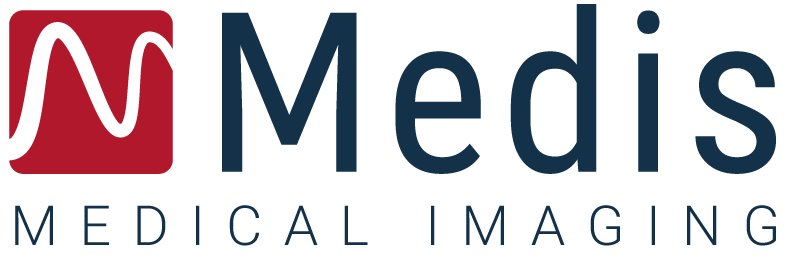Madrid, Spain – September 1st, 2025 Medis Medical Imaging today announced the interim results of the PIONEER IV trial, presented during the Late-Breaking Clinical Trials session at the European Society of Cardiology, confirming that percutaneous coronary intervention (PCI) guided by Quantitative Flow Ratio (QFR®) is non-inferior to usual-care PCI, including iFR, FFR, IVUS and OCT guided-PCI, across a broad, real-world population.
Conducted across 26 sites in Europe and enrolling 1270 patients treated with the HT SupremeTM stent from SINOMED, this PIONEER IV interim analysis assessed 1-year outcomes using the Patient-Oriented Composite Endpoint (POCE): a combination of all-cause death, stroke, myocardial infarction (MI), and any clinically and physiologically driven revascularization. The trial met its primary endpoint, with the QFR-guided strategy showing clinical noninferiority with the usual-care arm, which allowed the use of advanced intravascular physiological (FFR/iFR) and imaging (IVUS/OCT) modalities at the operator’s discretion.
Established professor of Interventional Medicine & Innovation at University of Galway, Patrick Serruys, said: “This trial may change our diagnostic and therapeutic approach in the near future. The ESC guidelines recommend a PreTest Probability of CAD prior to any invasive or non-invasive test; the non-inferiority of QFR diagnostic and therapeutic guidance compared to usual care including preprocedural diagnostic tests and periprocedural pressure derived and intravascular imaging may deeply affect our clinical practice and the cost effectiveness of this new approach need to be prospectively evaluated. The easiness of the physiologic assessment post procedure is another major asset of this new approach”.
Measuring What Matters to Patients
While traditional endpoints like Major Adverse Cardiac Events (MACE) capture only cardiac death, MI, and ischemia-driven revascularization, POCE expands the lens to include stroke and non-cardiac deaths, offering a more sensitive and patient-centered view on the impact of different clinical strategy. This broader perspective is particularly important in strategy trials, where clinical decisions influence not just outcomes but the trajectory of care.
“With QFR, we’re not just removing wires—we’re removing variability and unnecessary procedural complexity,” said Dr. Joanna Wykrzykowska, principal investigator and steering committee member of the PIONEER IV trial from the UMCG Groningen, the highest-enrolling center in the trial. “By using QFR, we’ve captured the true clinical value of a streamlined, physiology-first approach. QFR integrates anatomical and physiological guidance not only to support diagnosis, but also to help plan interventional strategy. It is equally reassuring to validate stent results post PCI with it.”
Getting the Full Picture Without the Burden
Unlike point-by-point wire-based methods, QFR uses angiographic data to generate full-vessel physiological maps in seconds. This offers a comprehensive functional assessment of coronary lesions, without interrupting workflow, increasing patient risk, or requiring additional equipment.
“PIONEER IV confirms that QFR delivers results non-inferior to the current gold standards in PCI – matching not only angiography-guided procedures, but also those guided by physiology and imaging,” said Maya Barley, CEO of Medis. “With the recent introduction of our next-generation QFR software, we have enhanced accessibility and reproducibility, enabling broader adoption of impactful PCI guidance in routine clinical practice.”
Clinical Momentum Continues
PIONEER IV adds to the growing body of evidence from FAVOR III China, FAVOR III Europe, REPEAT QFR, and FLAVOUR II, positioning QFR as the leading non-invasive physiology platform. QFR is already recognized in the 2024 ESC Guidelines with Class I recommendation and is cleared for use in the U.S., Europe, and other international markets
The PIONEER IV trial is sponsored by University of Galway and funded by SINOMED.
About Medis Medical Imaging
For over 35 years, Medis has provided innovative and clinically validated software solutions to the cardiovascular imaging community. Medis’ tools are trusted globally by clinicians, researchers, and industry partners to improve diagnostic precision and patient care. With a strong commitment to quality and usability, Medis continues to lead in the advancement of non-invasive cardiovascular imaging.
